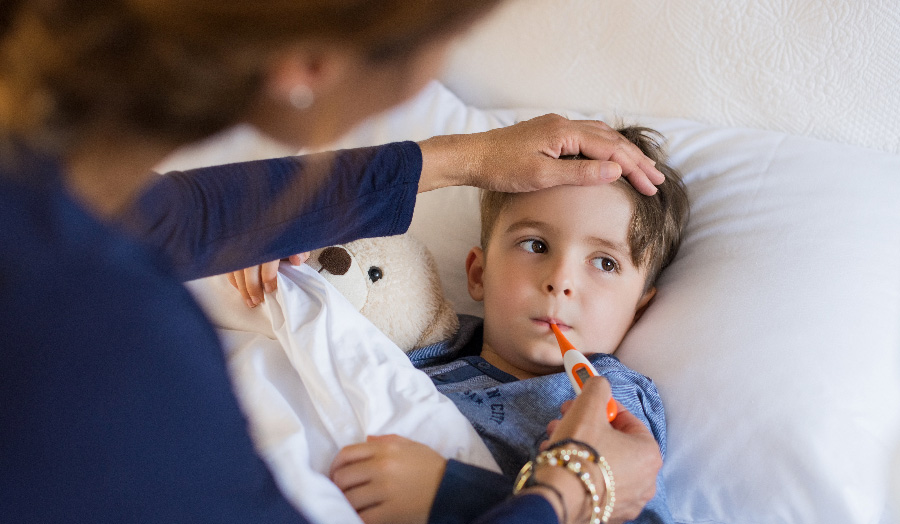Top tips to prevent your children from catching the flu
The flu is very common in babies and children. Their immature immune systems mean they more likely than others to catch it, particularly once they start attending nursery or school (1). If they do catch the virus, these ‘super-spreaders’ spread it quickly, putting not only their friends and sibling but also their grandparents and other vulnerable relatives at risk.
The virus can be very unpleasant for children. They would get the same symptoms as an adult: a fever, headache, stuffy nose, dry cough and sore throat along with chills, achy muscles and extreme tiredness (2). These can last for up to a week, during which time you may have to take time off work or arrange alternative childcare (3).
Some children can develop serious complications with the flu, including bronchitis, pneumonia and a painful ear infection (2) (3). They can also develop a very high fever, even without the usual flu symptoms (3), and may need to visit the hospital.
Stop the flu spreading
Preventing your children from catching the flu is not going to be easy, but there are some steps you can take to minimise their risk of infection:
- Encourage them to not touch their eyes, nose or mouth (4) (5). Germs are most likely to enter their bodies this way, particularly if they’ve touched something contaminated with germs (5).
- Keep yourself and your children away from people who are sick (4). Avoid unnecessary visits to sick friends or relatives and steer clear of crowded situations (5). As a minimum, reduce time in these situations (5).
- Ensure you and your children stay at least one metre from anyone with flu symptoms if you can’t avoid visiting someone who is sick or if another family member catches the flu (5).
- If you get the flu yourself, avoid close contact with your child (6). Consider arranging for another caregiver to look after them if possible, so you don’t make them sick.
If anyone in your household does catch the flu:
- Clean and disinfect frequently touched surfaces (4) (6).
- Encourage everyone to wash their hands regularly (4) with soap and water. Washing should go on for at least 20 seconds, and hands dried thoroughly (5). Use an alcohol-based hand cleaner if you’re not near water (6).
- Ensure the sick person covers their nose and mouth with a tissue when they cough or sneeze, then throw the tissue away and watch their hands (6).
Vaccination is the best option
A yearly flu vaccine is the best way of protecting your children from the flu (6). As a parent, you should make sure you, other caregivers and all household members aged six months and older also get vaccinated each year.
If your children are vaccinated, their symptoms will be milder if they do catch the flu (4). If you are vaccinated, you will be less likely to get the flu and therefore less likely to spread it to your children (6). As well as helping to keep your children healthy and safe, vaccination also inhibits the infection’s ability to spread, which helps to protect other friends and relatives (3).
Have your children had their annual flu vaccine this year?
Sources
(1) https://www.england.nhs.uk/2017/11/super-spreader-children-should-get-flu-vaccination-to-protect-grandparents-at-christmas/
(2) https://www.nhs.uk/conditions/vaccinations/child-flu-vaccine/
(3) https://assets.publishing.service.gov.uk/government/uploads/system/uploads/attachment_data/file/714954/PHE_Protecting_Child_Flu_DL_leaflet.pdf
(4) https://www.who.int/influenza/spotlight
(5) https://ecdc.europa.eu/en/seasonal-influenza/prevention-and-control/personal-protective-measures
(6) https://www.cdc.gov/flu/protect/infantcare.htm






Leave a comment